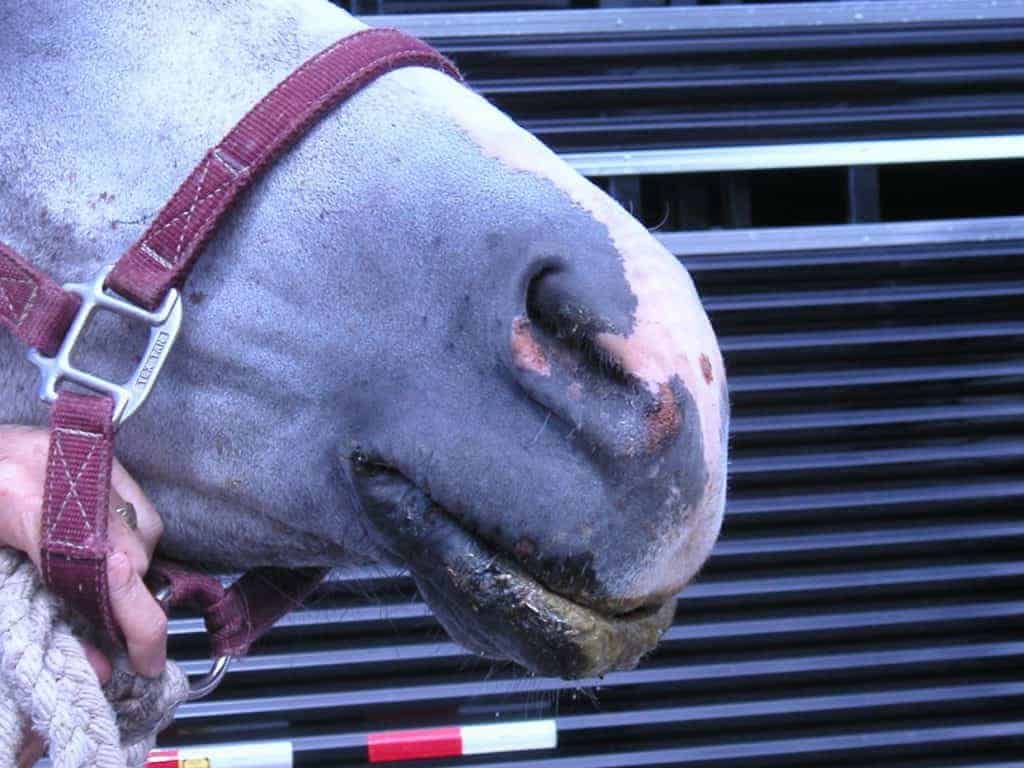
The Aftermath of Vesicular Stomatitis
The large-scale VS outbreak in 2014 caused extended quarantines and transportation headaches for horse owners.

The large-scale VS outbreak in 2014 caused extended quarantines and transportation headaches for horse owners.
Diseases diagnosed include herpesvirus, tetanus, strangles, piroplasmosis, West Nile virus, and more.

Drought conditions pose unique health care and management challenges for horse owners. Here’s what you need to know.

In all, there were 556 livestock investigations in the state resulting in 370 quarantines.

Three premises in Santa Cruz County have been quarantined as a result of the positives.
Diagnosed diseases include strangles, influenza, vesicular stomatitis, hendra virus, salmonellosis, and more.

Twenty-six Colorado premises remain under quarantine after animals tested positive for vesicular stomatitis (VS).

Rarely a week goes by during late summer and fall that a state animal health authority doesn’t report vesicular stomatitis cases. But, what is this disease and should you be concerned about it infecting your horses?

Are you concerned about transporting your horse during a vesicular stomatitis (VS) outbreak? A veterinarian shares tips on how to protect your equids while traveling.

Learn about 20 important equine infectious diseases that could make your horse sick, how they are spread, and ways to prevent them in our easy-to-follow visual guide.
Reported diseases include contagious equine metritis, strangles, influenza, equine herpesvirus, and more.

The World Organization for Animal Health?s (OIE) standards help prevent the spread of infectious disease.
Diseases reported include contagious equine metritis, equine herpesvirus, piroplasmosis, and more.

The final quarantines connected to the outbreak were released in late December, according to the summary.
Equine herpesvirus-1, vesicular stomatitis, and West Nile virus were all confirmed in Colorado horses in 2012.

The quarantines were imposed when two cases of VS were confirmed in Colorado earlier this year.
Stay on top of the most recent Horse Health news with
"*" indicates required fields